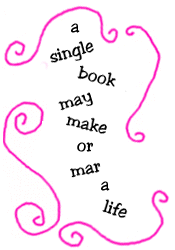 Since I have a great love of books, I thought that I would feature some words about books and reading, brought to you by C. H. Fowler and W. H. De Puy from Home and Health and Home Economics. It is interesting that in their preface they state:
Since I have a great love of books, I thought that I would feature some words about books and reading, brought to you by C. H. Fowler and W. H. De Puy from Home and Health and Home Economics. It is interesting that in their preface they state:
“The preparation of these pages has been a constant delight. The privilege of putting so many hundred important suggestions into a hundred thousand homes, to enter into the convictions and manners and lives and destinies of so many young people, and bear the fruit of peace and comfort and gentleness and culture in a million homes of the future, is gratefully accepted as the opportunity of a life-time.”
Amazing ~ I was thinking that just the other day! Please excuse me while I wipe a tear from my eye and shout “right on!”
1880: How and What to Read
![]() We live among books to find the good, the beautiful, and the true in them, and by them to be inspired and led into the heart of nature and into the soul of mankind. A few hints in this labyrinth is better than a master. Indiscriminate reading will give much information and lose more. It fixes no centers around which future acquisitions crystallize.
We live among books to find the good, the beautiful, and the true in them, and by them to be inspired and led into the heart of nature and into the soul of mankind. A few hints in this labyrinth is better than a master. Indiscriminate reading will give much information and lose more. It fixes no centers around which future acquisitions crystallize.
A course of reading should develop all the intellectual faculties.
A few books may give culture. Poverty, preventing you from buying many costly books, need not keep you from undertaking the culture of your mind. Lincoln read chiefly the Bible and Shakspeare [sic]. Good books can be frequently re-read with profit.
Choosing books is important business. A single book may make or mar a life. Voltaire learned an infidel poem when he was five years old, and it molded his life. Hume, when a boy, took the infidel side of a question in a debating society, and cast his die. What books will you let come into the place of your parents and friends?
Youth should be left to themselves in the selecting of books no more than in the selecting of companions.
The desirableness of books depends upon their truth to nature, their euphony, language, ideas, and vigor. The best books are those that elevate the character by moving the heart.
Some books should be read, whether we like them or not, because they are necessary to educate and culture.
Some books should be read because they are so often alluded to by other writers and in general conversation.
One should be thoroughly acquainted with the books and names of the authors of his own land. Patriotism should lead a man to know the glory in the midst of which he lives.
Read occasionally good essays, biographies, standard books of travel, and a little standard fiction. Sometimes too protracted reading of heavy histories wearies the purpose of the uncultured, and the mind refuses to hold the results. Change of diet is good for body and mind.
Let each prominent fact become a center of arrangement for other facts. When the piles are thus driven, it is wonderful how soon the sea washes in a new formation and foundation for future building. Every book, and almost every paper, will add something to the stock of knowledge.
Some find a blank book and a pencil good companions in reading. Thus, marked passages can be retained for reference, or impressed on the mind of the work of writing.
If convenient, read with a friend. Discussion clears and fixes in the mind what you read.
Read aloud portions of every book. It enables you to test the style of the author.
Never read second-class stories. They steal the time and weaken the mind.
Never read what you do not wish to remember.![]()
Source: Fowler, C. H. and W. H. De Puy. Home and Health and Home Economics. New York: Phillips & Hunt, 1880.
~ pp. 60-61 ~